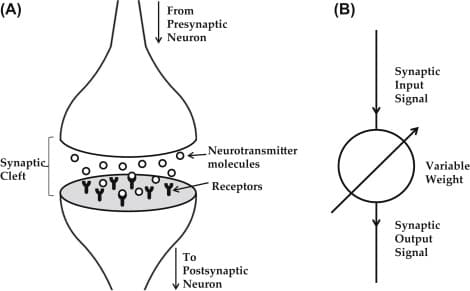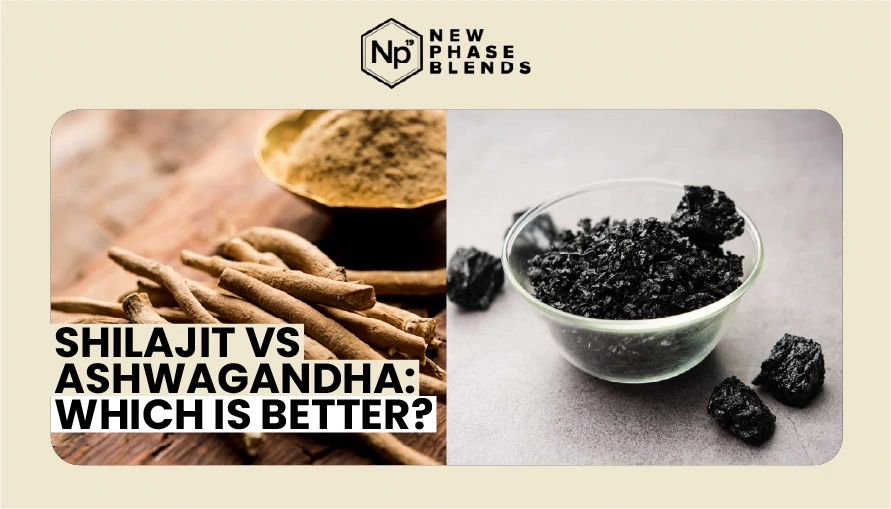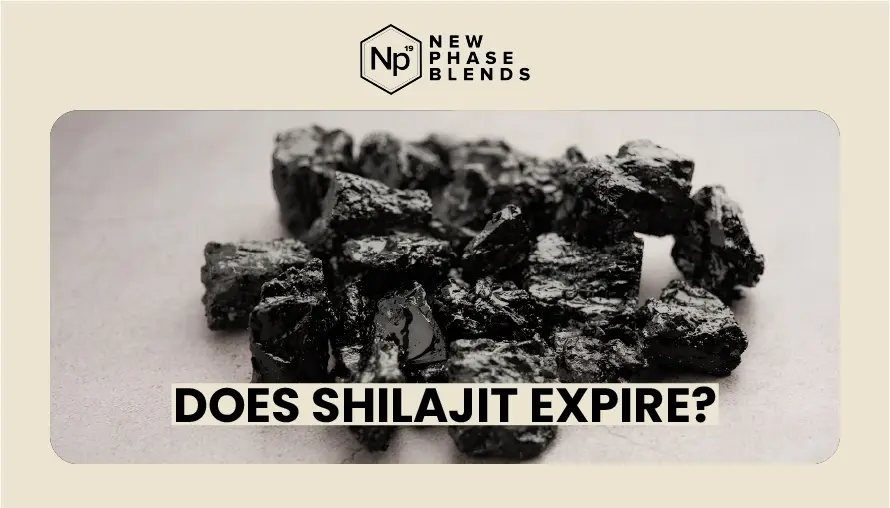Are you struggling with brain fog, declining memory, or difficulty concentrating? In our fast-paced world, maintaining optimal brain health has become a priority for many, and ancient remedies like shilajit are gaining attention for their potential cognitive benefits. This powerful natural substance has been used for centuries in traditional medicine systems, but only recently has modern science begun to validate its effects on brain function.
In this comprehensive guide, you’ll discover exactly how shilajit supports brain health, the science behind its cognitive-enhancing properties, and practical ways to incorporate it into your wellness routine. As a nutritional researcher who has studied adaptogenic compounds for over a decade, I’ll share evidence-based insights alongside practical applications that go beyond what you’ll find in basic overviews.
Shilajit and Brain Health

Shilajit (pronounced shil-ah-jeet) is a sticky, tar-like substance that oozes from rock crevices in mountainous regions, primarily in the Himalayas, Altai, and other mountain ranges. This blackish-brown resin forms over centuries through the decomposition of plant matter and contains a rich complex of minerals, fulvic acid, humic acid, and other bioactive compounds.
The Historical Brain-Boosting Context
For thousands of years, practitioners of Ayurveda (traditional Indian medicine) have prescribed shilajit as a “rasayana” or rejuvenator, particularly for enhancing mental performance. Ancient texts describe it as a substance that revitalizes mental clarity, enhances memory retention, supports overall brain function, and combats age-related cognitive decline.
What makes this ancient wisdom particularly interesting is how modern neuroscience has begun to validate many of these traditional claims through clinical research.
The Science Behind How Shilajit Helps Your Brain
What exactly happens in your brain when you take shilajit? Recent scientific research reveals several mechanisms through which shilajit supports cognitive function:
Neuroprotective Properties of Shilajit
Shilajit contains powerful antioxidant compounds that help protect brain cells from oxidative stress and damage. The fulvic acid component, in particular, is believed to contribute to these protective effects. The neuroprotective effects may work through several pathways, including neutralizing harmful free radicals that damage neurons and supporting mitochondrial function in brain cells. Additionally, shilajit may help reduce neuroinflammation associated with cognitive decline.
A study published in The International Journal of Alzheimer’s Disease (2012) highlighted fulvic acid’s ability to inhibit tau protein aggregation, which is a key factor in Alzheimer’s disease progression. The researchers suggested that fulvic acid, a major component of Shilajit, has strong neuroprotective properties and potential therapeutic value in preventing cognitive decline.
When neurons are better protected, they maintain functional communication pathways, which is essential for all cognitive processes.
Another 2016 study in the journal Neuroscience Insights found that fulvic acid improves mitochondrial function in brain cells, which plays a crucial role in neuroprotection. Since mitochondrial dysfunction is linked to neurodegenerative diseases like Alzheimer’s and Parkinson’s, Shilajit’s ability to enhance mitochondrial energy production can help maintain cognitive function.
Shilajit May Cause Cognitive Enhancement Through Energy Production
One of the most significant ways shilajit may benefit the brain is through enhanced cellular energy production. The brain is exceptionally energy-demanding, consuming approximately 20% of the body’s energy despite making up only 2% of body weight.
Research in Aging and Disease (2018) suggested that Shilajit improves oxygen transport and utilization, helping to sustain brain energy levels and prevent cognitive decline. The study concluded that Shilajit’s ability to enhance mitochondrial respiration and oxygen uptake could be particularly beneficial for aging individuals or those experiencing mental fatigue.
Traditional knowledge and some preliminary research suggest that shilajit may help improve mitochondrial function, potentially increasing ATP (energy) production. It may also enhance oxygen utilization in tissues and support efficient glucose metabolism, the brain’s primary fuel. This potential energy boost could translate to better cognitive performance, especially during mentally demanding tasks or periods of fatigue.
According to the Journal of Ethnopharmacology (2016), fulvic acid, a key component of Shilajit, improved mitochondrial function and increased ATP levels in neuronal cells. This supports the idea that Shilajit could counteract cognitive fatigue and enhance mental performance by boosting energy metabolism in the brain.
Neurotransmitter Regulation and Shilajit Use
A 2021 study in Frontiers in Neuroscience examined Shilajit’s potential role in GABA regulation. The findings indicated that Shilajit may support GABAergic activity, which helps reduce anxiety and promote a sense of calm and focus. Since GABA is a key inhibitory neurotransmitter, Shilajit’s influence on its function could explain its traditional use for stress resilience and mental clarity.

Optimal brain function also depends on balanced neurotransmitter activity. Some practitioners believe shilajit may influence several key neurotransmitter systems. This includes acetylcholine, which is essential for learning and memory; dopamine, which controls motivation, reward, and focus; and GABA, which regulates calm and mental clarity.
According to the Journal of Traditional and Complementary Medicine (2016), Shilajit may modulate dopamine levels, helping to enhance motivation, attention, and mood stability. This suggests that Shilajit could be beneficial for conditions associated with dopamine imbalance, such as ADHD or depression.
Traditional use suggests potential benefits for neurotransmitter balance, though more research is needed to fully understand these mechanisms.
Key Benefits of Shilajit for Cognitive Functions
Based on both traditional knowledge and contemporary research, here are the primary brain-related benefits you might experience from regular shilajit supplementation:
Enhanced Memory and Learning
Traditional usage and anecdotal reports suggest potential improvements in both short-term and long-term memory with shilajit supplementation. The fulvic acid component is thought to be particularly relevant to cognitive support.
A 2024 study investigated Shilajit’s cognitive-enhancing effects using a zebrafish model with hyoscine-induced amnesia. According to Current Functional Foods (2024), Zebrafish treated with Shilajit demonstrated improved memory performance, evidenced by increased entries into the reward arm and reduced latency times in a T-maze test. Additionally, Shilajit treatment reduced oxidative stress markers in the brain, indicating its antioxidative properties.
Shilajit user experience: those who incorporated shilajit into their supplement regimen during an intensive learning period noticed a marked improvement in information retention, particularly for complex concepts that previously required multiple reviews.
Improved Focus and Concentration
The cognitive benefits of shilajit extend to attention span and focus. This may be attributed to:
- Increased cerebral blood flow
- Better oxygen utilization
- Optimized neurotransmitter balance
Users commonly report noticing improvements in sustained attention during challenging mental tasks after 2-4 weeks of regular supplementation.
Stress Resilience and Mental Clarity
In our high-stress world, the adaptogenic properties of shilajit offer particularly valuable benefits for cognitive performance. Research indicates shilajit helps:
- Reduce cortisol (stress hormone) levels
- Protect brain cells from stress-induced damage
- Support adrenal function for better stress response
These adaptogenic effects can translate to improved mental clarity during periods of high demand or pressure.
Support for Age-Related Cognitive Changes
Perhaps most promising is shilajit’s potential role in supporting brain health as we age. Multiple mechanisms may contribute to this effect, including antioxidant protection against age-related oxidative damage, potential anti-inflammatory effects, and support for cellular energy production, which naturally declines with age.
Traditional Ayurvedic medicine has long used shilajit specifically for supporting vitality and cognitive function in aging populations, suggesting potential applications for age-related cognitive support.
How to Use Shilajit for Optimal Brain Benefits
Translating research into practical application requires understanding how to use shilajit effectively. Here’s a comprehensive guide to incorporating shilajit for cognitive enhancement:
Finding Quality Shilajit
Not all shilajit products are created equal. For brain health benefits, quality matters significantly. Look for purified shilajit, as raw shilajit may contain contaminants. Purified forms undergo processing to remove impurities while retaining beneficial compounds. Quality products should specify fulvic acid content, typically between 15-20%.

It’s also important to verify the source of your shilajit. Authentic Himalayan or Altai Mountain shilajit is considered premium, though other mountainous regions produce good quality as well. Whenever possible, choose products tested for heavy metals and microbial contaminants by third parties.
Caution: Avoid extremely low-priced products, as proper purification processes are costly, and low prices often indicate inferior quality or potential contamination.
Effective Dosage Guidelines
Based on clinical research and traditional use, here are general dosage recommendations for cognitive benefits:
- Standard daily dose: 300-500mg of purified shilajit resin or powder
- Beginning users: Start with 100-200mg daily to assess tolerance
- Timing: Take with breakfast or lunch, as some users report increased mental energy that might affect sleep if taken too late
Important: These are general guidelines. Individual responses vary, and it’s always advisable to consult with a healthcare provider before beginning any supplement regimen.
Integration With Other Brain-Supporting Practices
Shilajit works best as part of a comprehensive approach to brain health. Consider combining it with:
- Complementary nutrients: B vitamins, omega-3 fatty acids, and antioxidants
- Physical exercise: Regular aerobic activity enhances shilajit’s cognitive benefits
- Mental stimulation: Learning new skills provides synergistic effects
- Quality sleep: Adequate rest optimizes brain regeneration processes
Common Misconceptions About Using Shilajit for Brain Health
As with many traditional remedies gaining modern popularity, several misconceptions exist:
Misconception #1: Immediate Cognitive Enhancement
Unlike stimulants that produce immediate effects, shilajit typically requires consistent use over 2-4 weeks before noticeable cognitive improvements manifest. The mechanisms involve gradual optimization of cellular energy, neurotransmitter balance, and neuroprotection—processes that develop over time.
Misconception #2: All Shilajit Products Deliver Equal Benefits
The vast quality differences between shilajit products significantly impact cognitive benefits. Low-quality or adulterated products may contain minimal active compounds or potentially harmful contaminants. Always prioritize quality over price when selecting shilajit for brain health.
Misconception #3: Shilajit Alone Can Transform Cognitive Performance
While shilajit offers substantial support for brain health, optimal cognitive function relies on multiple factors, including diet, sleep, stress management, and mental exercise. Shilajit works best as part of an integrated approach to brain optimization.
Potential Side Effects of Taking Shilajit Supplements For Brain Health
While generally considered safe for most adults, shilajit supplementation comes with important considerations:
Certain groups should exercise particular caution with shilajit supplementation. Pregnant or nursing women should avoid it due to insufficient safety data. People with iron disorders should be careful as shilajit may increase iron levels. Individuals with gout may want to consult their doctor first, as the high fulvic acid content might affect uric acid metabolism. Those on blood-thinning medications should also be cautious since some components may have mild anticoagulant effects.
Most users tolerate shilajit well, but some report mild digestive discomfort when starting supplementation. Occasional headaches may occur, often related to dehydration as shilajit increases mineral absorption. Some users also notice changes in energy levels or sleep patterns. The majority of side effects can be mitigated by starting with a lower dose, ensuring adequate hydration, and taking shilajit with food.
The Future of Shilajit Research for Brain Health
Current research on shilajit for cognitive function is promising but still emerging. Several exciting directions for future research include:
- Clinical trials specifically examining shilajit’s effects on age-related cognitive decline
- Comparative studies with established cognitive enhancers
- Investigation into specific neurological conditions that might benefit from shilajit’s neuroprotective properties
- Identification of optimal combinations with other nutrients for synergistic cognitive effects
The growing interest in natural nootropics and brain health supplements suggests we can expect significant advances in our understanding of shilajit’s cognitive benefits in coming years.
Conclusion: Is Shilajit Right for Your Brain Health?
Shilajit offers a fascinating bridge between ancient wisdom and modern neuroscience. The emerging research validates many traditional claims about its cognitive benefits, particularly for:
- Supporting memory and learning processes
- Enhancing focus and concentration
- Providing neuroprotection against age-related decline
- Improving mental energy and clarity
As with any supplement, individual responses vary, and shilajit works best as part of a comprehensive approach to brain health that includes proper nutrition, physical activity, mental stimulation, and stress management.
If you’re seeking a natural approach to support cognitive function—particularly for long-term brain health—shilajit deserves consideration as a research-backed option with centuries of traditional use behind it. When sourced properly and used consistently, it may provide the cognitive edge you’re looking for without the side effects associated with many synthetic alternatives.
Remember that investing in brain health is one of the most important steps you can take for your overall quality of life, and exploring evidence-based natural options like shilajit represents a thoughtful approach to cognitive optimization.






















